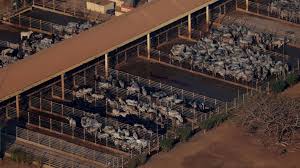
Brazil’s beef industry is experiencing a significant shift in its export patterns following the imposition of U.S. tariffs on Chinese goods. Recent trade data shows that Brazilian beef exports to China have surged by 38%, while shipments to the United States have declined by 41%, highlighting the ripple effects of international trade tensions on global agricultural markets.
The increase in Brazilian beef exports to China reflects the growing demand from one of the world’s largest beef-consuming nations. With U.S. products facing higher tariffs in China, importers have turned to alternative suppliers, creating a favorable environment for Brazilian producers. This shift has provided a boost to Brazil’s meat industry, helping to offset some of the losses from reduced shipments to the United States.
Conversely, the decline in exports to the U.S. market underscores the sensitivity of agricultural trade flows to tariff policies. The 41% drop in shipments has raised concerns among Brazilian exporters, as the United States has traditionally been one of Brazil’s major beef markets. Exporters now face the dual challenge of maintaining competitiveness in the U.S. while capitalizing on rising opportunities in Asia.
Industry experts note that this development highlights the interconnected nature of global trade. Tariffs imposed in one region can create shifts in supply and demand across other markets, affecting prices, production planning, and trade relationships. For Brazilian producers, the current scenario emphasizes the importance of market diversification and strategic partnerships to navigate changing international conditions.
The surge in exports to China is also likely to influence domestic production strategies. Brazilian beef producers may adjust herd sizes, processing capacities, and logistical operations to meet growing Chinese demand, while also monitoring U.S. market conditions for potential recovery opportunities.
Government officials and trade analysts are closely watching the evolving situation, as these shifts have implications not only for Brazil’s agricultural economy but also for global beef markets. The realignment of export destinations reflects broader trade dynamics triggered by international tariff disputes, reinforcing the need for agile strategies in agricultural commerce.
As Brazil’s beef exports continue to adapt to changing global trade conditions, the industry demonstrates resilience and flexibility. While challenges remain in managing reduced shipments to traditional markets, the growth in exports to China highlights the opportunities that arise from shifting economic landscapes and international trade policies.














